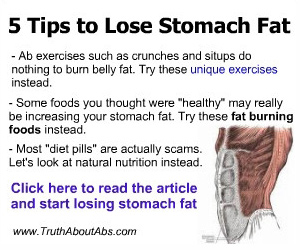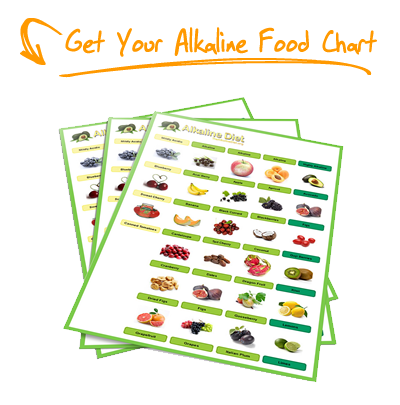Red Meat Increases Cancer Risk
Posted on 24. Apr, 2010 by Staff Writer Candy Del Carmen in Blog
Are you an avid red meat lover? The meat industries are surely delighted to hear that. On the other hand, vegetarians or health conscious may find it sinful to include high fat diet in their healthy lifestyle. Nothing is new when people hear about poor diets linking to various diseases.
It sounds like an everyday cliché. You may say “who cares?”, but maybe, after reading this insightful article, you may no longer dominate 70% of your plate with red meat.
Why Red Meat?
It is called red meat because of the higher concentration of myoglobin, this is an iron containing protein which helps muscle to utilize oxygen from the blood to the muscles. It has distinctive darker-colored that allows muscle to be used in any broad activities like walking and standing.
Meat of adult mammals including cows, sheep and horses are considered red meat. Whereas, meat of young mammals such as pigs, milk-fed calves and sheep belong with classification of white meat. Do not be confused because regardless of how it is cooked (whether overcooked, well-done, or raw), a red meat is a red meat based on the animal source.
Nutritional Value of Red Meat
It is worth remembering that red meat is great source of complete protein and iron. There are also minerals such as zinc, phosphorus, levels of creatine, and several vitamins including niacin, vitamin B12, thiamin and riboflavin. The most powerful antioxidant, Alpha Lipoic Acid, is also included on the nutritional value of red meat.
In the 1992 edition of the USDA food guide pyramid, many critics condemned the Union Solidarity and Development Association, an agency responsible for administering programs that address farming issues, for not distinguishing the red meat from any other types of meat. Thus, in 2005 edition of My Pyramid, it recommends lean form of red meat as part of food guide pyramid.
While mentioning the nutritional value of red meat, researches and medical studies show otherwise, conclusive findings resulted to several health risks of regular eating of red meat. There are several mechanisms by which red meat is associated with deadly cancer and heart attack.
Recent Study Connecting Red Meet to Bladder Cancer
Generally, health is all about food. Another discovery that can support my statement was presented recently in American Publication for Cancer Research 101st annual meeting. In a 12 year study conducted by University of Texas M. D. Anderson Cancer Center, there are 884 patients with bladder cancer and 878 participants who do not have it, responded to standardized questionnaires on their dietary habits. The result showed that people who regularly eat red meats have 1.5 chances to develop bladder cancer than to those who ate in moderation.
The National Cholesterol Education Program (NCEP) Recommended Diet
Red meat has saturated fat which always link to coronary heart disease. Fats may be necessary as part of our balanced diet but also take note that not all fats are equally distributed throughout the meat. It would depend on the animal breed and age. Processed meat has substances known as nitrosamines, which also caused to cancer.
The National Cholesterol Education Program (NCEP) recommends the diet intervention and reduces the frequency consumption of red meat as the first-line treatment in management of high blood cholesterol levels. It has been shown in many studies that the cholesterol-raising fatty acids it contains can increase the high cholesterol level which triggered to heart attack.
The ideal NCEP diet is limited to less energy intake or fat intake to 30%, saturated fatty acids to 8%, and cholesterol to less than 300 mg/d. Lean red meat provides small amount of fatty acids which are not harmfully influence the blood lipid profile.
The risk of heart disease, according to clinical studies, is 27% higher for men and 50% for women. Heart disease can be decreased by 11% in men and about 21% for women, only if, limiting the intake of red meat. Also, it has been proven that high in fat and low in vegetables, fruits and fiber can lead to various type of cancer.
Lessen the fat intake from these cuts of beef such as ground beef, pork, lamb, hot dogs, sausages, and bacon. What is an ideal consumption of red meat? Only couple of times a week can be considered as low consumption. Dunn team of researchers published a study about the high risk of people to various diseases from regularly eating more than two portions per day of cooked red meat, as to compare with people who only consume less than one portion per week.
Taiwan’s Campaign for Meat Free Monday
In East Asia, Taiwanese are one of the meat lovers consuming more than 200g per day. Just recently, the Chairman of the Taiwan Institute for Sustainable Energy called on citizens to make Monday a meat free, replacing vegetables in their meals instead of meat consumption.
Aside from knowing its risk factor to health, shortening the average life expectancy to around 78.6 years, this campaign is also for global warming based from the U.N Food and Agricultural Organization 2006 report. Their findings alarmed people across nations who are unaware that animal food manufacture is merely part of climate change emission due to methane and nitrous oxide produced in meat production. As a result, many Taiwanese advocates already implementing meatless Monday, also imparting the importance of this campaign to their own children.
We can also make a Change
Taiwan’s Campaign is just an example of a nation trying to make a change. With the collaborative effort of the government and its citizen, nothing is impossible to achieve our goal for optimal health and long battle against global warming. Nothing will lose if we take the first step toward our desired goal. It is never too late to bring about change starting within yourself, a change with desirable impact and contribution to human race.
Reference:
http://www.foodreference.com/html/art-meat.html
http://www.crikey.com.au/2009/07/29/does-red-meat-really-make-you-smarter/
http://blog.nutritiondata.com/ndblog/2009/07/red-meat-and-cancer-link-questioned.html
http://www.healthnews.com/blogs/melanie-grimes/nutrition-diet/red-meat-increases-risk-heart-disease-cancer-macular-degeneration-3397.h
http://www.emaxhealth.com/1506/100/35994/red-meat-obesity-raise-risk-colon-cancer.html
http://news.yahoo.com/s/hsn/20100420/hl_hs/meatloversfacegreaterriskofbladdercancer
http://www.foodproductdesign.com/s.aspx?exp=1&u=http%3A//www.foodproductdesign.com/news/2010/04/meat-consumption-bladder-cancer-linked.aspx
http://archinte.ama-assn.org/cgi/content/full/159/12/1331
http://www.chinapost.com.tw/editorial/taiwan-issues/2010/04/06/251297/p2/For-our.htm






Recent Comments